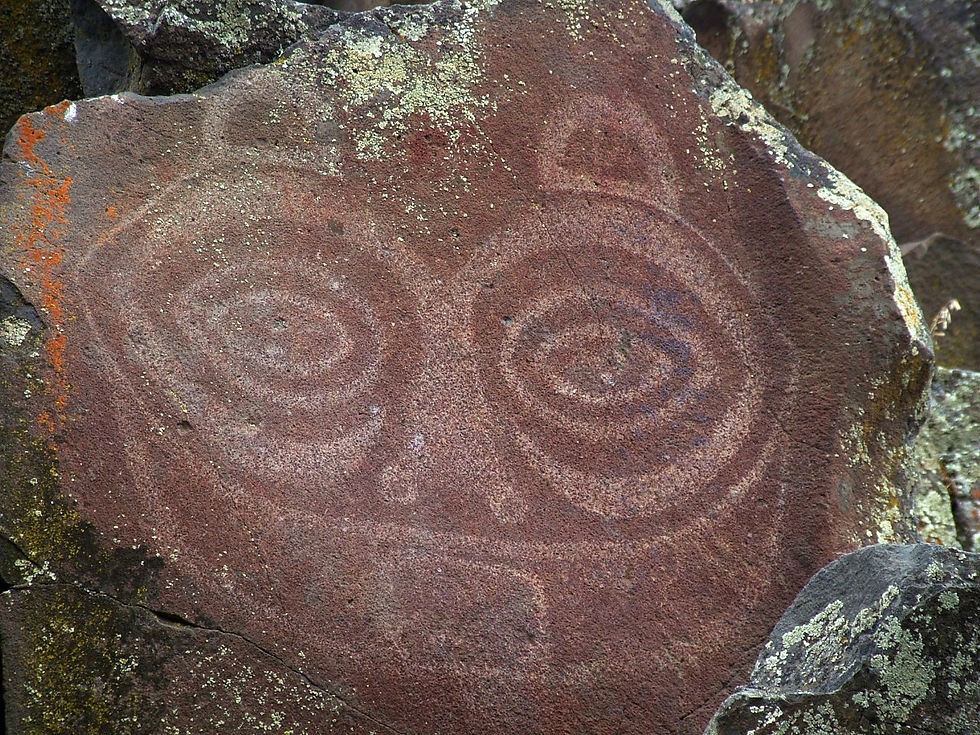Happy birthday Oregon? Our state's problematic history
- Marie G-G
- Feb 14, 2023
- 4 min read

Oregon is known for many things. Beautiful coastlines. Excellent skiing and hiking. Organic and vegan foods. Christmas trees. Cranberries. Nike. Portlandia and Grimm. A thriving “Keep Portland Weird” that has been coined “Little Beirut" and "anarchists and agitators who hate our country." Temperate weather. The Oregon Shakespeare Festival and Crater Lake. Esperanza Spalding, the Decemberists, Sleater-Kinney, Pink Martini, and Robert Cray. Cheryl Strayed, Ken Kesey, Ursula LeGuin, Beverly Cleary, David James Duncan, and Brian Doyle.
But we have a problematic history.
I received an email from Oregon Public Broadcasting the other day with a story about Oregon's centennial celebration and birthday cake on February 14. Absent from that newsletter was the true history of this beautiful state. This whitewashed email prompted this blog post.
We cannot celebrate Oregon’s “birthday” or even mention it without recognizing the inherent problems in our state’s history.

Stolen from the tribes
As a child, I learned about the Oregon Trail and the “founding” of Oregon in 1859. I learned about Lewis & Clark and how a Shoshone woman, Sacajawea, led them on their journey between 1804 and 1806.

Sacajawea was an incredible leader, but she was trafficked. She had been captured by the Hidatsa tribe, who traded or lost her in gambling to a French-Canadian fur trader named Toussaint Charbonneau.
At the time of Lewis & Clark’ expedition, more than 60 Native American* tribes occupied Oregon. They spoke at least 18 languages and lived in hundreds of villages.
Lewis & Clark’s “voyage of discovery” laid claim to this land for European settlers. In just a few decades, the land was stolen through the Christian policy called “Manifest Destiny” and the “Doctrine of Discovery.” Treaties were established and soon broken. Tribes began diminishing and being confined to reservations.
Along the Oregon Trail, Native Americans were much more likely to be traders and allies than adversaries. Around the time of Oregon's "founding" (between 1840-1860), American Indians killed around 362 European migrants, but those settlers killed 426 Indians.
Between 1800 and 1900, the Indians lost more than half of their population.
And in 1953, more than 60 Oregon Tribes in Oregon were terminated by the federal government.
Founded as a racist utopia
By the mid-1800s, not only had the land been stolen from the Native Americans, but also the new settlers decided they wanted to create a racist utopia. In 1844, they passed Oregon’s first Black exclusion law, which stated that Blacks who tried to settle here would be publicly whipped 39 times, every 6 months, until they left Oregon.
Oregon’s first constitution banned slavery, but it prohibited new Black residents and made it illegal for Black people to own real estate, make contracts, vote, or use the legal system.
When Oregon became the 33rd state on February 14, 1859, it was the only state admitted with an “exclusionary clause.” A racist utopia.
In 1900, voters rejected a proposal to rescind the exclusion clause. The exclusion clause stayed in our state constitution until 1926.
Around that time, the Ku Klux Klan arrived in Oregon and began thriving here. The klan also had allies in the legislature.
Read my article for the Cultural Advocacy Coalition of Oregon about the small logging town of Maxville, where all races worked together and formed a community in the 1920s.
Asians were not treated much better. Chinese were brought in as laborers and treated horribly. For years, Asian immigrant men were prohibited from bringing their wives to settle here. In Portland, whites attempted to expel Chinese immigrants by burning buildings in Chinatown and enacting an anti-Chinese club.
In 1887, a small group of white men killed 34 Chinese miners in Hells Canyon in eastern Oregon.
Racism is not just in our past
We are still the 15th whitest state in the nation (84.3 percent of Oregon's population is white). Known for its liberal attitudes, Portland is one of the whitest big cities in the United States.
Our whiteness is a natural outcome of the purpose of Oregon's “founding.”
Remaining historical racial references such as “negroes,” “mulattoes” and “whites" were not moved from the Oregon constitution until 2002…when 30 percent of Oregon voters actually voted to keep those phrases in the constitution.
Those trendy cafes, shops, and neighborhoods Portland has become known for? They displaced Black and brown families who can no longer afford to live in those previously diverse neighborhoods.
Racism is more polite here than it is elsewhere. But it totally exists.

Oregon’s Indian population is down to about 45,000. That means only around four percent of residents is Native American. We now have only nine federally recognized tribes.
I have always loved living in Oregon. But I feel deeply ambivalent about it. It’s a state of deep beauty, creativity, independence, and spirit. But our history is deeply problematic, and we still have our problems. Let's not whitewash it any more.
European settlers stole the land and legislated racism into our constitution.
I don’t feel like celebrating Oregon’s “birthday” today. How about you?
*I've chosen to use the words "Native American" and "Indian" in this article, because both terms are still used by the American Indigenous Tribes.
Let me know if you can use help with inclusive communications and leadership...or with internal or external communications, marketing, or leadership.
I help professional services firms avoid BORING and boost employee engagement, productivity, and readership. I translate technical, complex, and lackluster language into accessible, dynamic, story-driven text. Get known in your industry through outstanding thought leadership content. Walk your talk through outstanding, effective communications with your employees and clients.
Fertile Ground Communications LLC is a certified women-owned business enterprise, disadvantaged business enterprise, and emerging small business.




Commentaires